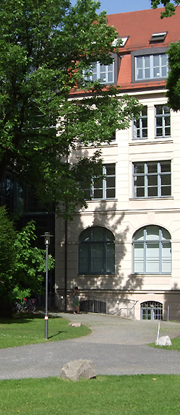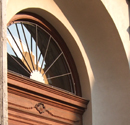Early Modern History at the History Department
Why Study Early Modern History?

The European 'discoveries', Humanism and the Reformation, the progress in science and technology – the early modern period represents profound changes. The rich sources make its exploration particularly exciting. We can focus, not only on kings and battles, but on individuals, their lives and conflicts. Conflicts characterize the early modern period: Different political and religious convictions were competing. The people of this epoch met these challenges with answers that still influence the modern world. They learned to live with plurality, to mitigate violent conflict, formed strong institutions and tested ways of coexistance and tolerance.
We can reconstruct how risky and complicated, partially bloody and revolutionary, these changes were because we have, not only rich source materials, but also methods that were developed substantially by early modernists such as cultural history, micro history and the history of mentalities.
In Munich, the early modern period is represented by the chair of Prof. Arndt Brendecke and a professorship for the history of Western Europe (Prof. Mark Hengerer) as well as by academic and teaching staff and guests. Apart from German History, the focus areas are the history of France and Spain, colonial Latin America and the early Globalization. The Institute profits from interdisciplinary cooperation, international exchange and its proximity to collections of world rank, such as that of the Bavarian State Library and its manuscript and old prints.



